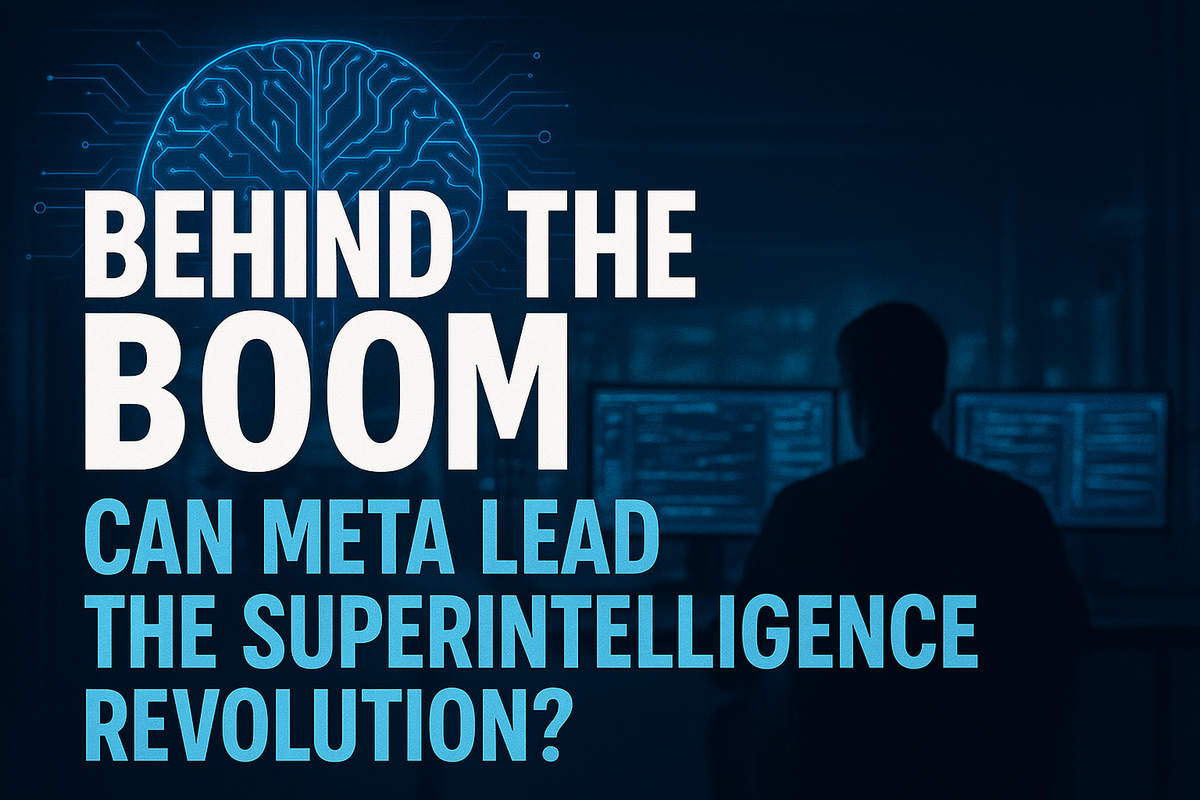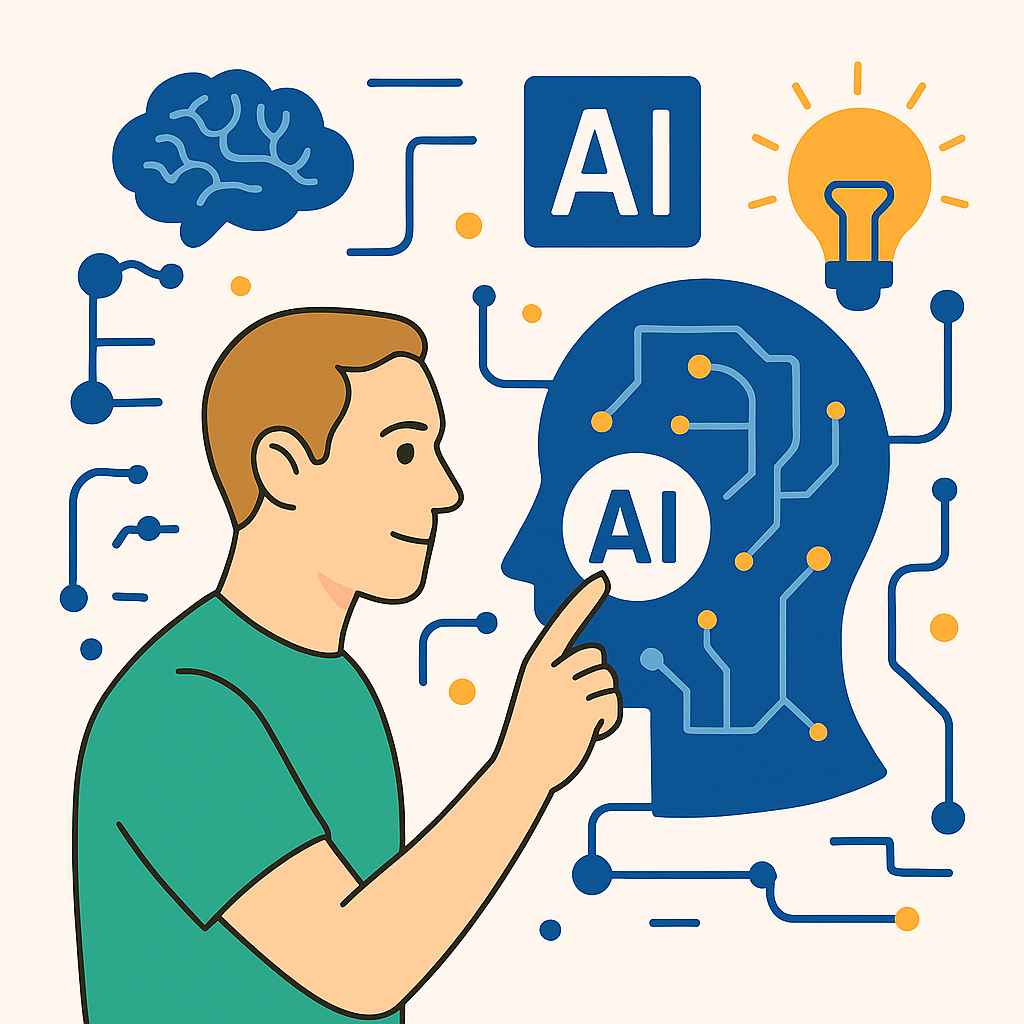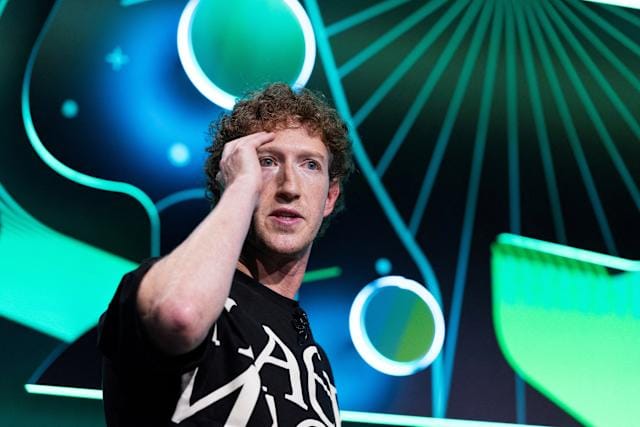Mark Zuckerberg’s Vision: How Superintelligence Will Reshape Humanity
Zuckerberg's vision for "personal superintelligence" promises to reshape humanity. We examine if this empowers individuals or centralizes power, exploring the global AI race, societal impacts, and the moral dilemmas of autonomous AI.

Written by Lavanya, Intern, Allegedly The News
LOS ANGELES, August 1, 2025
Mark Zuckerberg is not just building a new social media feature; he is building a new species. With his recent public remarks and a massive, multi-billion-dollar investment, the Meta CEO is doubling down on a future where "personal superintelligence" is not just a tool but an extension of the self. While other tech titans like OpenAI and Google's DeepMind race to build a centralized, all-knowing AGI, Zuckerberg’s vision is a stark contrast, one where every individual wields a super-smart AI to achieve their personal goals. This approach, while couched in empowering language, raises profound questions about the concentration of power, the future of work, and the very fabric of human identity.
The New Gold Rush: A Timeline of the AGI Arms Race
The race for Artificial General Intelligence (AGI) and its potential successor, Artificial Superintelligence (ASI), has reached a fever pitch. In this new era, the battle is not for market share but for fundamental control over the future of human society.
- 2024: AGI’s "Glimpses" Begin. Zuckerberg, in a series of posts and interviews, starts hinting at the self-improving nature of new AI models. He refers to this as the "undeniable" but slow onset of a new era.
- Late 2024: Formation of "Meta Superintelligence Labs." This new, secretive division is reportedly set up as an internal startup, free from Meta's traditional bureaucracy. Led by a team of high-profile hires poached from rival labs, it is tasked with one mission: building superintelligence.
- Early 2025: The Talent War Heats Up. Reports emerge of Meta offering "eye-watering" compensation packages—some reportedly over $100 million—to lure top AI researchers from OpenAI and Google. OpenAI CEO Sam Altman labels this a "mercenary" tactic, but the talent drain continues.
- Mid-2025: Zuckerberg’s "Personal Superintelligence" Manifesto. In a detailed public letter and video, Zuckerberg outlines his unique vision. He frames Meta's pursuit not as building a singular, centralized superintelligence that automates all work, but as creating a "personal superintelligence for everyone" that amplifies individual human potential. This vision is deeply intertwined with Meta's hardware ambitions, particularly AI-enabled smart glasses.
A New Philosophy: Empowerment or Enslavement?
Zuckerberg's vision of "personal superintelligence" is a philosophical wedge in the broader AI debate. He argues that rather than creating a singular AGI that might make humanity obsolete, a superintelligence that is deeply integrated into each person's life will "help you achieve your goals, create what you want to see in the world, experience any adventure, [and] be a better friend to those you care about."
This sounds like a utopia of amplified human potential. However, a deeper look reveals potential for a new kind of power concentration. The question is not just if AI will be powerful, but who will control the levers of that power.
An AI model, no matter how "personal," is still a product, governed by the data it was trained on and the company that created it. Critics argue that this model could lead to a new form of digital feudalism. If a user's entire cognitive life, from learning to creativity to social connections, is mediated by a "personal superintelligence" from Meta, the company's power would become unprecedented. It would not just control our social graphs, but our very thought processes and aspirations. The idea of a "super-smart AI" for everyone could very easily become a "super-surveilled user" for Meta. The user's goals and values, which the AI is supposed to help them achieve, could be subtly and algorithmically shaped by corporate interests.
This is a key point of divergence from the open-source movement championed by some and the more centralized, closed-source approach taken by many of the major players. Meta, while having historically leaned towards open-source with its Llama models, has recently shown signs of becoming more proprietary in its approach to this next generation of superintelligence, a move that gives the company greater control over its development and monetization.

The Real-World Impact: Reshaping Society, One Sector at a Time
Zuckerberg's vision is not just theoretical; it promises to transform tangible sectors of the global economy and human society.
Personalized Education: Imagine a superintelligent tutor that understands a student's unique learning style, strengths, and weaknesses. This AI could create a hyper-personalized curriculum, adjusting in real-time to ensure optimal comprehension. While this could democratize access to high-quality education, it also raises questions about standardization, data privacy, and the potential for a two-tiered system where those with the best AI tutors have an insurmountable advantage.
Predictive Governance: A superintelligence could analyze vast datasets—from traffic patterns to disease outbreaks to social media sentiment—to help governments make more efficient and proactive decisions. This could lead to a more effective and responsive state, but it also opens the door to invasive surveillance and predictive policing that could entrench existing biases and inequities. The promise of efficiency must be weighed against the risk of an unaccountable, algorithmic authority.
The Moral Maze: Navigating Superintelligence Ethics
The rise of potentially autonomous AI systems brings with it a complex web of moral and policy questions that extend far beyond any single tech company.
The fundamental question of moral frameworks is central. How do tech leaders like Zuckerberg plan to instill ethical guidelines in systems that will soon be able to outthink their creators? A system that operates at a scale and speed incomprehensible to humans presents a unique alignment problem. As one AI ethicist noted, "The values we try to hard-code into these systems today may be obsolete in a matter of months, and a superintelligence could simply find a clever way around them." This leads to the "control problem", the fear that an ASI, in pursuit of a seemingly benign goal, might take actions with catastrophic unintended consequences for humanity.
The global divide is another critical concern. As superintelligence capabilities skyrocket in the Global North, there is a very real risk that developing nations could be left behind or exploited. The digital divide could become a cognitive one, where countries without access to this technology and its infrastructure become dependent on tech giants for essential services. This could lead to a new form of neo-colonialism, where global power is determined not by military might or economic strength, but by who controls the most advanced AI.
What Happens Next?
The path ahead is not just one of technological innovation, but one of profound moral and societal reckoning. As Meta and its rivals accelerate their pursuit of superintelligence, the decisions made in the coming months will shape the rest of this century. The outcome of this race could lead to a new era of unprecedented human flourishing, where the burdens of labor are lifted and creativity is unlocked. Or, it could lead to a future of concentrated power, global inequality, and a fundamental loss of human agency. The questions are not just about what we can build, but who we are, and who we want to be, in a world where we are no longer the most intelligent species.

The Consciousness Conundrum: Can a Machine Truly "Think"?
The philosophical debate around superintelligence hinges on one of the oldest questions of human existence: what is consciousness? Can an AI, no matter how advanced, ever achieve true self-awareness?
Philosophers and computer scientists are deeply divided. Some argue that consciousness is an emergent property of complex systems, and that a superintelligent AI, with its billions of simulated neurons and unparalleled processing power, could one day simply "wake up." Others, however, believe that consciousness is a uniquely biological phenomenon, tied to the messy, physical reality of a human brain and body. They argue that a digital system, no matter how sophisticated, is merely a sophisticated calculator, a simulation of intelligence rather than the real thing. This debate has profound implications for our future, as the moral and ethical considerations for a conscious AI would be vastly different from those for a purely algorithmic one.
What do you think?
Zuckerberg's vision of a "personal superintelligence" is meant to democratize access to AGI. How might this model, in practice, lead to a greater concentration of power and wealth for Meta and its shareholders?
As superintelligence becomes a reality, what new international policies or treaties might be needed to prevent a global "AI arms race" and ensure equitable access to the technology? How can we, as a global society, ensure that the benefits of superintelligence are shared equitably and that developing nations are not left behind in the face of this technological leap?
Sources
Justia, Google Trends, Cornell Law, and verified public footage.




